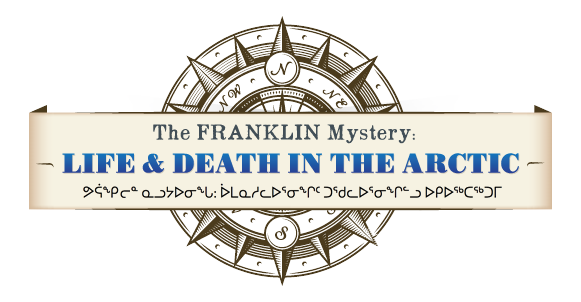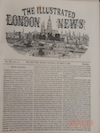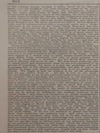British Adventure (1849)
"NON ANGLI SED ANGELI" – "They are not Angles, but Angels" – was the well-known exclamation of the Roman, on beholding or [sic] the first time the beautiful youth of the Anglo-Saxons, who appeared as captives in the then metropolis of the world. "Angli et Angeli" – "They are Englishmen and angels ;" or, to use the primitive meaning of the word, "They are Englishmen and messengers" – might be the exclamation of any one who at this age of the world reflected upon the vast enterprise and unconquerable energy of the Anglo-Saxon race. The British people are in a far greater degree than any other the messengers of civilisation. They have already done more by themselves and by their progeny for the extension of geographical and scientific knowledge, and the general progress of humanity, than any other people under the sun. With the exception of a few researches into the records and monuments of the ancient civilisations of the East, and the voyage of La Perouse, which have been undertaken by Frenchmen, and a slight exception in favour of a few Dutchmen and Germans, the history of maritime and overland discovery for the last seventy years is a history of the exploits and self-devotion of Britons. A glance at the interesting Anglo-Saxon map which has recently been published will suffice to show how largely the world is indebted to us and to our children of America for the efforts we have made to extend its knowledge of the physical structure of the earth. In the Arctic and in the Antarctic circles, in the Tropics, and amid the countless islands of the Pacific, we have left our benificent [sic] marks. Whether impelled by the desire of gain, by the spirit of adventure, by the love of knowledge, or by all these combined, the grand result is the same. Our physical, moral, and intellectual presence is felt in every region of the globe. If in some of these regions it was conquest, and no motive more exalted, which led us to establish our dominion amongst tribes and nations alien to us in language, religion, and manners, the most bitter enemies of British power will scarcely hazard the denial of the fact, that, even when we conquer, the general tendency of our dominion is to civilise and refine.
Yet, though much has been done, much remains to do. The interior of the vast African continent is still a sealed book, which many future Mungo Parks, Bruces, Denhams, Clappertons, and Landers will be desirous to open for the satisfaction and instruction of the world. The interior of that more recently discovered and even more interesting continent of Australia, destined, we cannot doubt, to become, in the fullness of the time, the seat of an empire far more magnificent than Great Britain herself, has yet to be explored. New Guinea, Borneo, Celebes, and a thousand smaller islands in the same prolific and splendid ocean, teeming with wealth, and requiring only the authority of an enterprising and industrious race to spur to exertion the indolent or savage men who now inhabit them, are yet in their first infancy as regards us and the wants of the world. We have already acquired a footing in the largest of these islands – the largest and finest island in the world. By individual or by national effort it will yet be turned to account at no distant date for the extension of our geographical and ethnological knowledge, and for the increase of our own wealth and that of the countries with which we shall trade. In all these seas there are yet discoveries to be made which will long continue to tax the willing energies of many future adventurers, who will rise up, as occasion calls, to vindicate the ancient renown of our race, and render themselves famous by their title to the gratitude of all civilised nations. The islands and continents of the Southern Pole are yet but half discovered. They extend from Palmer's Land, in the western, to Victoria, in the eastern hemisphere ; and, though commercially less important, they are scientifically as full of interest as the richer and more favoured territories of the Tropics. We may confidently expect to hear from time to time of the progress of work begun in those inhospitable quarters, and of the acquisition of stores of knowledge derived from experiments and observations, of incalculable value to the geographer, to the astronomer, to the natural philosopher, and, perhaps, even to the trader.
But of all the Expeditions which private enterprise or public policy has fitted out for the exploration of the still unknown regions of the globe, the several expeditions for the discovery of the northwest passage are looked upon by the people of this country, and by the world in general, with the greatest interest and anxiety. The failure of one expedition is but the incentive to fit out another; and the greater the danger, the greater is the eagerness of enterprising and resolute men, from the most able and experienced Commander to the hardest-working common sailor, to share it, upon the chance of the imperishable renown which success will afford them. Captains Parry, Ross, Back, Franklin, and their brave companions, who have been engaged at intervals for the last thirty years and upwards in their endeavour to solve this deeply interesting problem, and to determine the configuration of the Great North American Continent and of that other great Arctic continent of which Greenland is almost all that is known to us, have carried with them on their departure the cordial good-wishes of their countrymen for their success. Their return in safety, after the manifold privations and hardships of such a voyage, has invariably been greeted with fervent enthusiasm; and the long absence of Sir John Franklin, the last gallant explorer of those seas, has excited in the public mind an affectionate and deep interest, amounting at last to a painful solicitude for his fate, and that of the brave men who share his perils and his glory. The connubial anxieties of Lady Franklin, and her efforts to incite by promised reward the exertions of the masters of whaling vessels to sail in search of the missing heroes, touched a strong chord in the national heart ; and the humblest and least-educated reader of the public events of our days, as recorded in the newspapers, indulged in the hope, that, sooner or later, and whether successful of unsuccessful in the great object of his voyage, Sir John Franklin would return to receive the thanks of his countrymen and the renewed affection of his friends and family. There is at last some ground to believe that this hope is not unfounded, and that Sir John Franklin and his hardy mariners are safe in Prince Regent's Inlet, and in communication with a congenial spirit and a congenial crew, in the persons of Sir James Clark Ross and his companions. Every arrival from those seas will be anxiously looked for, till the cheering news brought by the Captain of the Truelove be confirmed. The very name of the vessel is of good omen for Lady Franklin, and, through her, for the whole people who are interested in the safety of her husband. We can but express a hope, which we are confident will be shared by millions, that still more positive intelligence will speedily be received ; and that all reason for future apprehension with regard to the Erebus and Terror will be removed from her mind and that of the country.
These Polar Expeditions prove, even more completely than any others undertaken by our countrymen, the indomitable energy, the daring love of adventure, and the enthusiasm for discovery which so pre-eminently distinguish the Anglo-Saxon race, and which have raised it so high a position in the councils of the world. It has been alleged as a reason why no more money should be lavished upon North Polar adventure, and why no more valuable lives should be imperilled or sacrificed, that the North-West passage, even if effected, will be of no use. We shall know positively, and by actual proof and experiment, what we are now convinced of by process of reasoning ; but there, it is said, the advantage will end. A passage that is not always practicable, and that is only to be effected at large cost and enormous risk, is of no positive usefulness. We might as well be without it, for all the advantage that we can derive from it. All this is true in one sense : but, nevertheless, as far as this particular achievement is concerned, the scientific value outweighs the commercial, in the estimation of British genius ; and Expedition succeeds Expedition, and will continue to do so, until the object is accomplished. We think it is well that it should be so, and that even in the calculation of profit and loss we have no right to conclude that no good will result from the enterprise of our countrymen. Who, in these days, shall be hardy enough to set bounds to the limits of scientific discovery? Who knows what interesting problems of magnetism and electricity may yet be solved by intelligent and accurate observers in the Arctic Circle? and what now mysterious or utterly incomprehensible phenomena of nature may not be explicable hereafter, in consequence of experiments to be made in those regions? Who shall set bounds to our powers of locomotion, and say that hereafter we may not be able to force a passage even through the ice-fields of the 75th degree of North latitude? All that has been already done teaches humility to the true lovers of science; while, at the same time, it encourages them to make all their present knowledge the fulcrum of future achievements more splendid and more useful. If we are not destined to gather any harvest from their exertions, our posterity may ; and when we reflect how much our ancestors have done for us in this respect, and what an inheritance of scientific knowledge they have bequeathed to us, we may, without being presumptuous or over-sanguine, hope that our age also may, in various ways, as yet unknown, bequeath to our posterity an inheritance still larger. Even the North Polar Expeditions may do this ; and while the country welcomes back with gratitude every unsuccessful adventurer from those interesting but dangerous seas, it will continue to freight with its best wishes the ship of every new hero who shall make a new trial.




